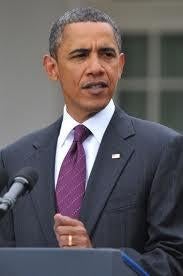On April 8, 2014, President Obama signed Executive Order 13665, amending section 202 of Executive Order 11246 which had previously prohibited employment discrimination by federal contractors based on race, color, religion, sex, sexual orientation, gender identity, and national origin. Executive Order 13665 added further protection for an employee’s or applicant’s inquiries, discussions, or disclosures regarding his or her own compensation or the compensation of another applicant or employee. This protection typically applies when the applicant or employee obtains this information through ordinary means such as a discussion or conversation with a co-worker.
Recently, on September 11, 2015, the Office of Federal Contract Compliance Programs (OFCCP) published its Final Rule implementing Executive Order 13665. The purpose of the Final Rule is to encourage pay transparency in order to decrease pay discrimination, to ensure fair compensation among employees, and to give employees access to information about the compensation of co-workers in order to discover and remediate violations of equal pay laws and other discriminatory practices. This Final Rule prohibits federal contractors from discharging or discriminating against employees or applicants who inquire about, discuss, or disclose their own compensation or the compensation of any other employee or applicant. The Final Rule also seeks to prohibit pay secrecy policies in an effort to encourage diversity in the workplace.
This Final Rule will be effective January 11, 2016, and will apply to any business or organization that (1) holds a single federal contract, subcontract, or federally assisted construction contract in excess of $10,000.00; (2) has federal contracts or subcontracts that have a combined total in excess of $10,000.00 in any 12 month period; or (3) holds government bills of lading, serves as a depository of federal funds, or is an issuing and paying agency for U.S. savings bonds and notes in any amount. The Final Rule applies only to employers that enter into a new covered federal contract or subcontract or modify an existing covered federal contract or subcontract after that date. The Final Rule applies to any employee that works for, or applies to work for, a company that has a federal contract with the Federal government as defined by the rule.
Although the Final Rule gives applicants and employees significant protection to freely discuss and disclose their compensation, there are two exceptions set forth in the Final Rule where protection is not available:
1) Inquiries, discussions, or disclosures of compensation information that employees obtain through their “essential job functions” are not protected. Information is obtained as part of “essential job functions” if:
a. Access to compensation information is necessary to perform that function or another routinely assigned business task; or,
b. The functions or duties of the position include protecting and maintaining the privacy of employee personnel records including compensation information.
However, the Final Rule does provide exceptions to the exceptions whereby the employee even as part of “essential job functions” may make a disclosure under certain defined circumstances. These employees may discuss their own compensation with other employees or discuss possible disparities involving another employee’s compensation with someone in management or may use the employer’s internal complaint process. Further, an employee in this category may disclose the compensation of other employees or applicants in response to a formal charge or complaint, investigation, proceeding, hearing, or action or if they make a disclosure based on information received through means other than through their essential job functions.
2) A defense is available to a contractor in the event that compensation inquiries are made in the midst of violating a consistently and uniformly applied workplace rule as long as the workplace rule generally doesn’t prohibit workplace disclosures.
The Final Rule under Executive Order 13665 extends the reach of discrimination against employees and applicants who discuss and disclose compensation information beyond the protections of the National Labor Relations Act, which also prohibits such discrimination, in that it covers supervisors, managers, agricultural workers, and rail and motor carrier employees.
Based on the above, it is recommended that a federal contractor subject to the Final Rule issue a pay transparency policy proactively confirming that they will not discriminate against employees or applicants based on inquiries, discussion, or disclosure of compensation information. Consultation with a competent attorney can help employers craft these policies.




 i
i

